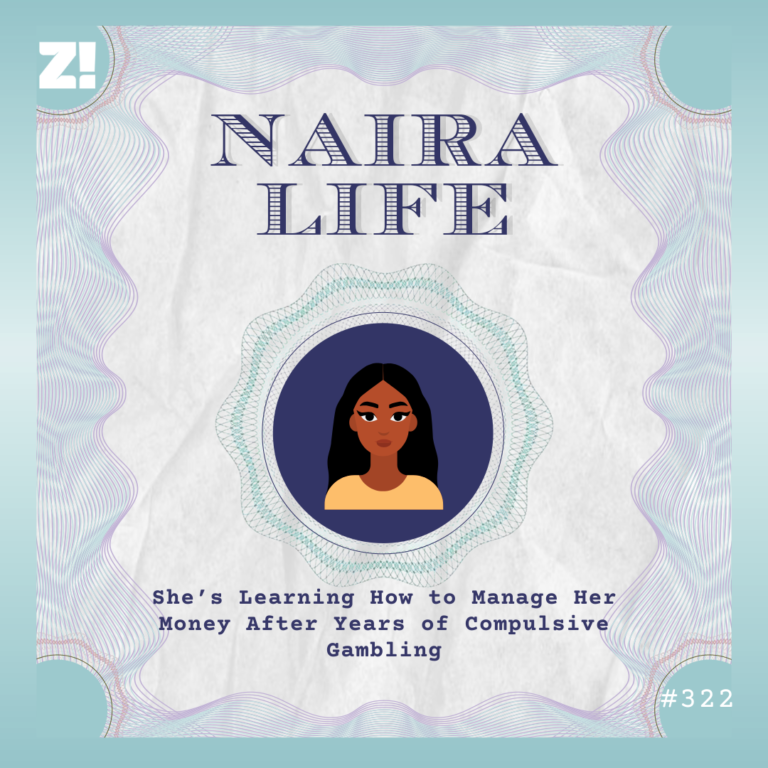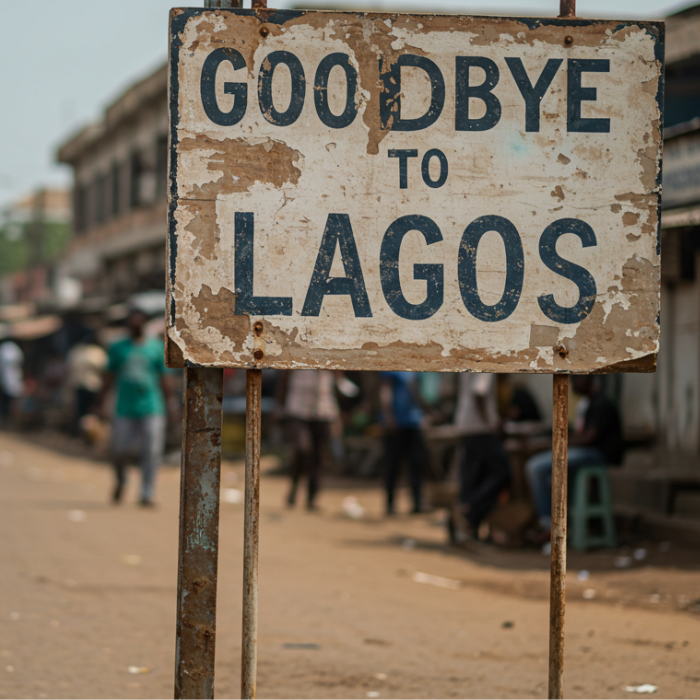Following newly inaugurated President Bola Tinubu’s (in)famous “subsidy is gone” declaration on May 29, 2023, Nigerians have been thrown into yet another cycle of fuel scarcity. But this time, it’s come with an almost doubled cost of fuel.

As expected, this has resulted in an increase in the cost of transportation and unusually empty roads, as many transport operators are either on the hunt for fuel, or simply parked their vehicles at home due to an inability to afford the new prices.
We talked to seven young Nigerians in different Nigerian cities, and they shared how the subsidy removal has affected their transportation budgets and overall quality of life.
“My transport spend will go from ₦5k/month to about ₦22k/month” — Mercy, 29. Kaduna
I use buses and keke napeps a lot because those are the easiest forms of transportation in Kaduna. I work five days a week, and I move around during the weekend too. I don’t have a car, so you’ll most likely see me in a keke.
Before the new fuel prices came into effect, my daily commute to work was ₦500: my house to the bus stop was ₦50, and then I’d take another keke and bike to get to my office, which cost ₦100 each—making ₦250 in the morning, and same amount when returning home.
Now, the keke from my house to the bus stop costs ₦100, and the other two stops now cost ₦200 and ₦150 respectively. I now spend ₦900 in transportation costs on a good day. It sometimes gets higher.
Apart from the increase, it’s now difficult for people to get buses. It’s easier for me because I live close to the junction, and I only have to be at work by 10 or 11 a.m. Kaduna is a typically busy city, but now the cars on the road are scanty, and people who have to be at work by 8 a.m. have a really difficult time.
This whole thing has changed my plans. I typically spend ₦5k on transport in a month, but now, this number will go up to roughly ₦20k-₦22k in a month. What will I now be eating? I need a raise or I’m die.
“I paid ₦1k for a fare that usually costs ₦300” — Ebube, 26. Lagos (Public transport user)
I often use public transport because I have to report physically to the office. My regular route is Iyana Oworo to Ikoyi, which is approximately a 45-minute journey on a good Lagos traffic day. On bad days, the sky is the limit.
It typically costs me ₦300 to go in the morning and ₦400 to return home, making ₦700 in total. It may even be ₦800 at times. However, since Monday, the price has been all over the place. On Tuesday, I spent ₦400 in the morning; on Wednesday, it was ₦1k and on Thursday, it was ₦500. Luckily for me, my colleague — whose fuel God has to keep replenishing —has been dropping me at home in the evenings.
The price increase isn’t even the only thing; it’s now a struggle to get one of the few buses available. I just want to be a soft girl, but imagine me, a whole lawyer trekking under Lagos sun and behaving like a conductor. My productivity is hanging by a thread because I’m less motivated to work. Also, I’m a lot more irritable these days, and I hate how it’s turning me into a nag. I just hope my colleagues understand.
“I had to pay ₦13k for a ride that should’ve cost ₦7k” — Busayo, 28. Lagos (Private ride-hailing app user)
I don’t have a car, and I don’t use public transport, so I pretty much go everywhere with an Uber or Bolt.
I do hospital trips from Ipaja to Lekki at least twice a month. Before the price hike, it typically costs ₦7k for this distance. If I was going to Surulere, it’d cost around ₦4k.
On Thursday, I did ₦13k to Lekki, and that was the best price. It wasn’t difficult to get a ride, but the first driver the app matched me with was trying to charge more. Uber suggested ₦8,800, but the driver and I did a 20-minute negotiation chat where he insisted he couldn’t go at that price and asked to be paid double whatever the price came to at my destination. That would’ve been around ₦18k or more. I eventually found a Bolt driver who didn’t haggle and drove me at the price Bolt suggested.
The inconvenience is just the additional cost for now, but I suspect there’ll be a real problem when my generator runs out of fuel.
RELATED: Fuel Subsidy: Tinubu Went off Script, and Nigerians Are Facing the Brunt
“I’ve spent half my usual weekly transportation budget in two days” — Nnenna, 26. Abuja
I stay at Kubwa and work at Maitama — a 30-40 minute cab ride — which costs about ₦400 in the morning, and ₦600 in the evening, totalling ₦1k. Now, I spend ₦700 in the morning and between ₦950-₦1k when I’m returning home. That’s about ₦1,700 in one day. It’s crazy. My transport budget was ₦10k weekly — including the occasional cost of food at work —but I’ve already spent ₦5k in two days.
Even with the increased cost, getting cabs in the morning is difficult. Most drivers have parked their cars at home, and the road is so free in the mornings now, though the usual evening traffic is still the same. The few drivers available are aggressive. At least, it’s just transport costs affected at the moment. I use a solar panel at home, so I don’t have to worry about fuel to power a generator. It’s saved me a lot.
“Short distances are now almost double the price” — Queeneth, 25. Port Harcourt
I use public transport when I have errands to run, and ride-hailing apps like Bolt when I go out to chill or visit someone. Since subsidy removal, I’ve used public transport a few times, and Bolt once.
After the first fuel price increase earlier this year, kekes went from ₦50 to ₦100 for short distances. Now, it’s been increased to ₦150-₦200. A two-minute ride from one junction to the next is still ₦150 or ₦200, and it’s the same price if you drop at the last bus stop. It’s the same with buses and local taxis. They’ve all added around ₦100 or ₦200 to the base fare.
The Bolt I took on Tuesday also charged ₦1,300 for a 7-minute ride that cost ₦700 before subsidy removal. It seems that’s the new base price because I just checked the app for another close-by location, and the fare was also ₦1,300.
The only way this situation has helped is that there’s barely any traffic on the road. My junction is typically filled with vehicles, but now there’s no one there. However, it also means you have to wait for about eight minutes before you find a vehicle, and most are already filled up. Some drivers have also stopped working, or are in queues somewhere looking for fuel. Even fuel stations don’t want to sell fuel. Thankfully, NEPA is pretty stable here, so I don’t buy fuel.
“Okada fares have increased by 100%” — Dare, 22. Ado-Ekiti
Everyone who doesn’t have a car in Ado has to use okadas. There are no two ways about it. The small buses are usually for long distances and don’t enter the streets. I go out every day for work, and since the Monday announcement, it’s been tough.
Before, I could easily find okadas when I walked to my junction, but now I have to wait a while or even trek. The few ones available charge 100% more, and it’s honestly not their fault. Fuel is now ₦500 per litre here. The fuel station queues are so long that you’ll see people lining up five minutes before you even get to the fuel station.
I only turn on my generator once a day now, and only when absolutely necessary, because even if I can afford the new price, it’ll probably take me hours to even buy it.
It’s just a matter of time before food prices will follow suit. I’m tired and frustrated. It’s always one thing in this country. Just a few weeks ago, it was cash scarcity, now this. I’m fed up, and I know I didn’t vote for this.
“I now rely on okada” — Tayo, 25, Ibadan
I work remotely, and only leave home when I have an outing. When I do go out, I use Uber. But since subsidy removal, I now rely on okadas. Two days ago, I tried to order an Uber. The app said ₦1,500, but the driver said he wouldn’t go unless I paid him ₦3k. I just gently cancelled it and went to look for okada. Even the okadas have increased by around ₦100 or ₦20, depending on the distance.
The major downside for me is fueling my generator because I’ll always need it to work. On Tuesday, I purchased 16 litres of fuel for ₦16k, and my chest is still paining me.
NEXT READ: To Japa or Not to Japa? Seven Over-30 Nigerians Reflect on Their Choices




